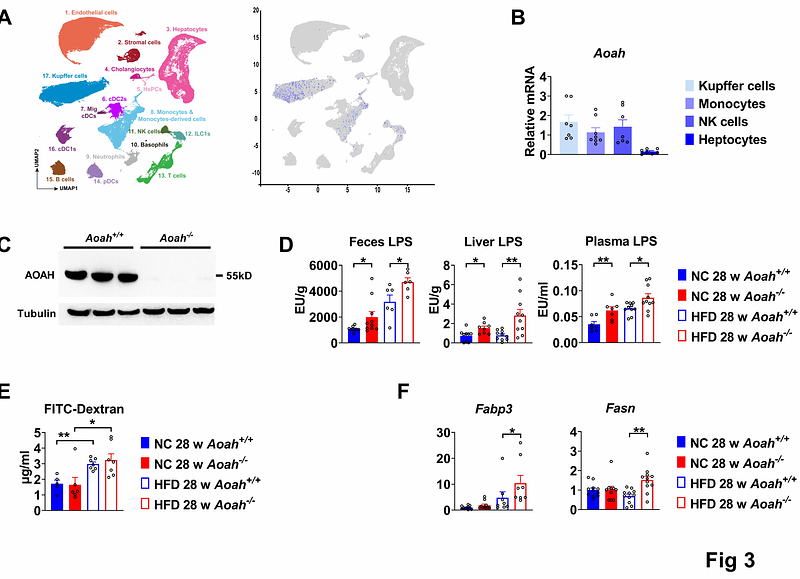A host enzyme reduces non-alcoholic fatty liver disease by inactivating intestinal lipopolysaccharide

A host enzyme reduces non-alcoholic fatty liver disease by inactivating intestinal lipopolysaccharide
Wang, Z.; Ojogun, N.; Liu, Y.; Gan, L.; Xiao, Z.; Feng, J.; Jiang, W.; Chen, Y.; Zou, B.; Yu, C.; Li, C.; Ashuo, A.; Li, X.; Fu, M.; Wu, J.; Chu, Y.; Munford, MD, R. S.; Lu, M.
AbstractThe incidence of Non-alcoholic Fatty Liver Disease (NAFLD) has been increasing world-wide. Since gut-derived bacterial lipopolysaccharides (LPS) can travel via the portal vein to the liver and play an important role in producing hepatic pathology, it seemed possible that LPS stimulates hepatic cells to accumulate lipid, and inactivating LPS can be preventive. Acyloxyacyl hydrolase (AOAH), the eukaryotic lipase that inactivates LPS and oxidized phospholipids, is produced in the intestine, liver, and other organs. We fed mice either normal chow or a high-fat diet for 28 weeks and found that Aoah-/- mice accumulated more hepatic lipid than did Aoah+/+ mice. In young mice, before increased hepatic fat accumulation was observed, Aoah-/- mouse livers increased their abundance of Sterol Regulatory Element-Binding Protein 1 (SREBP1) and the expression of its target genes that promote fatty acid synthesis. Aoah-/- mice also increased hepatic expression of CD36 and Fabp3, which mediate fatty acid uptake, and decreased expression of fatty acid-oxidation-related genes Acot2 and Ppar-. Our results provide evidence that increasing AOAH abundance in the gut, bloodstream and/or liver may be an effective strategy for preventing or treating NAFLD.


